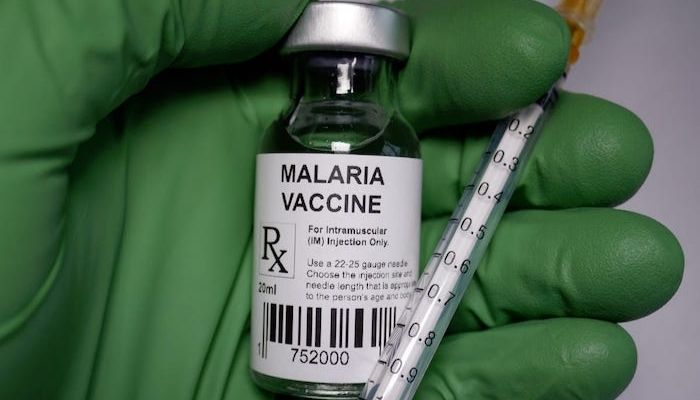News
Like Ghana, Nigeria approves R21 malaria vaccine

The National Agency for Food and Drug Administration and Control (NAFDAC) has approved the Serum Institute Pvt. Ltd. (SIIPL) R21 malaria vaccine for the treatment of malaria in Nigeria.
The NAFDAC Director-General, Prof. Mojisola Adeyeye, confirmed the development at a news conference on Monday in Abuja.
She said the approval was in line with the agency’s mandate as stipulated by its enabling law — NAFDAC Act CapN1, Law of the Federation of Nigeria (LFN) 2004.
Adeyeye stressed that it has become necessary to grant approval for the vaccine following the 2021 report which revealed that Nigeria had the highest number of malaria cases in the world at 27 percent.
The NAFDAC chief said the highest number of deaths arising from malaria at the global level stood at 32 percent in 2020, adding that Nigeria accounted for an estimated 55.2 percent of malaria cases in West Africa the same year.
Nigeria is the second country after Ghana to approve the vaccine developed at the University of Oxford and scaled up by the Serum Institute of India (SII).
The Ghanaian Food and Drugs Authority approved the use of the R21 vaccine for use in children aged between five months to three years old earlier this month.
She said: “Malaria is one of the most important public health concerns in the world, the latest World Health Organisation (WHO) Malaria Report shows there were 247 million cases of malaria in 2021 compared to 245 million cases in 2020.’’
READ ALSO: Ehanire clarifies $200m loan request to tackle malaria scourge
“The estimated number of malaria deaths stood at 619,000 in 2021 compared to 625,000 in 2020.
“During the peak years of the pandemic (2020–2021), COVID-related disruptions led to about 13 million more malaria cases and 63,000 more malaria deaths.
“The WHO African region continues to carry a disproportionately high share of the global malaria burden. In 2021 the region was home to about 95 percent of all malaria cases and 96 percent of deaths.
“Children under five years of age accounted for about 80 percent of all malaria deaths in the region. Four African countries accounted for just over half of all malaria deaths worldwide, with Nigeria (31.3 percent), the Democratic Republic of the Congo (12.6 percent), the United Republic of Tanzania (4.1 percent), and Niger (3.9 percent) respectively.
“Malaria is transmitted throughout Nigeria with 97 percent of the population at risk. The duration of the transmission season ranges from year-round transmission in the south to three months or less in the north.”
Adeyeye noted that the R21 malaria vaccine is an adjuvanted protein vaccine presented as a sterile solution.
“A dose, which is 0.5ml, is composed of R21 Malaria antigen 5µg and Matrix-M1 50µg as an adjuvant filled in a vial as a ready-to-use liquid formulation for intramuscular injection,” she added.
Join the conversation
Support Ripples Nigeria, hold up solutions journalism
Balanced, fearless journalism driven by data comes at huge financial costs.
As a media platform, we hold leadership accountable and will not trade the right to press freedom and free speech for a piece of cake.
If you like what we do, and are ready to uphold solutions journalism, kindly donate to the Ripples Nigeria cause.
Your support would help to ensure that citizens and institutions continue to have free access to credible and reliable information for societal development.
























